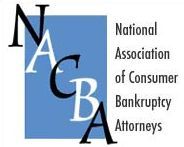Debt consolidation companies tell you that they can make deals with the banks and settle your credit card debts. Understand that they start taking your money even before they make any contact with the banks. There is absolutely no guarantee that the banks will take their offer. These salespeople take your money and promise to “try” to negotiate deals for you.
Understand that credit card companies will probably not want to negotiate; and, even if they do agree to negotiate, they can always change their minds later and sue you for the full amount. Be wary of these companies as they are very good at making promises but very rarely do they follow through. I have many clients who come to me after paying a lot of money to these companies only to be hit with a lawsuit from one of their creditors.
After clients are sued, they are shocked and feel betrayed as they thought that the debt consolidator had it all under control. Then they find out that after 6 months of payment to the debt consolidation company, the consolidator has not made any headway on their case and all of their creditors are looking to take more aggressive steps. As an attorney, I can make the lawsuits stop. The reason that this company told you not to file bankruptcy is because it doesn’t have lawyers so they cannot offer you bankruptcy services.
Unlike Debt Consolidation, Creditors are Required to Accept Your Bankruptcy
Chapter 7 and Chapter 13 bankruptcy will immediately stop creditors from harassing you, stop wage garnishment, repossession and foreclosure. The law provides an “Automatic Stay,” which is a statutory injunction prohibiting creditors from beginning or continuing with most forms of collection activity (there are some very specific, limited exceptions).
Any creditor who takes action in violation of the Automatic Stay after being notified of the bankruptcy filing may be held in Contempt of Court, and penalties may be imposed on a creditor who disobeys the Automatic Stay. Creditors do not have the right to refuse to honor the effects of a bankruptcy filing, nor can a creditor refuse to be named as a creditor in a bankruptcy case.
A creditor who believes that it should be permitted to begin or continue action to collect on a debt, such as a car lender who is not being paid when a Chapter 7 case is filed, may petition the Bankruptcy Court for relief from the Automatic Stay in a pleading called a Motion for Relief from the Automatic Stay. However, the debtor has the opportunity to oppose such action and obtain a Court hearing before the creditor may be granted such relief.
In Chapter 13, the debtor may propose to catch up on missed payments over three to five years, and such a proposal can result in the Court denying a request by a car lender to proceed with repossession based on missed payments. Your attorneys at Seelinger Law can provide you with more examples of how the Automatic Stay works in Chapter 7 and Chapter 13 bankruptcy.

